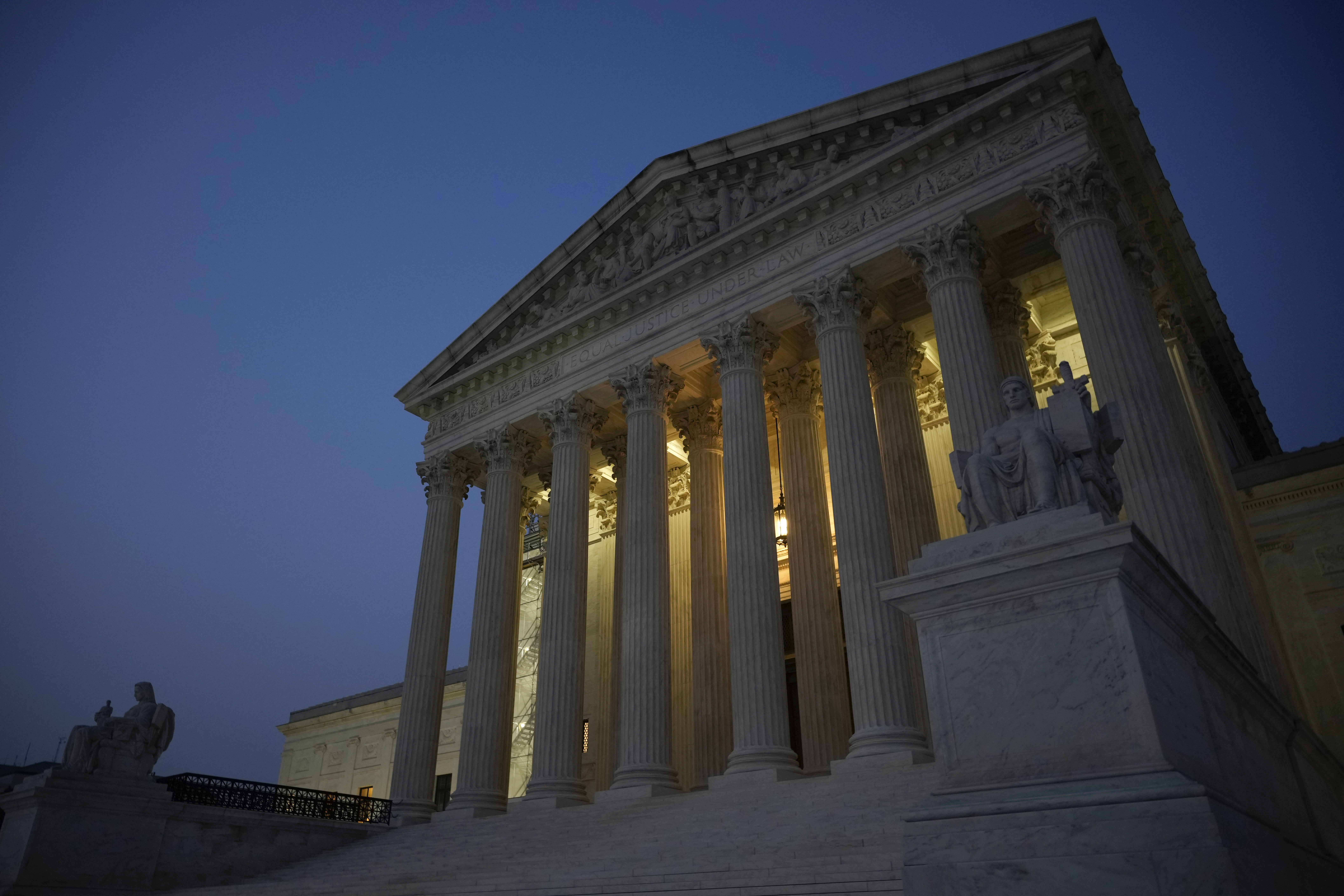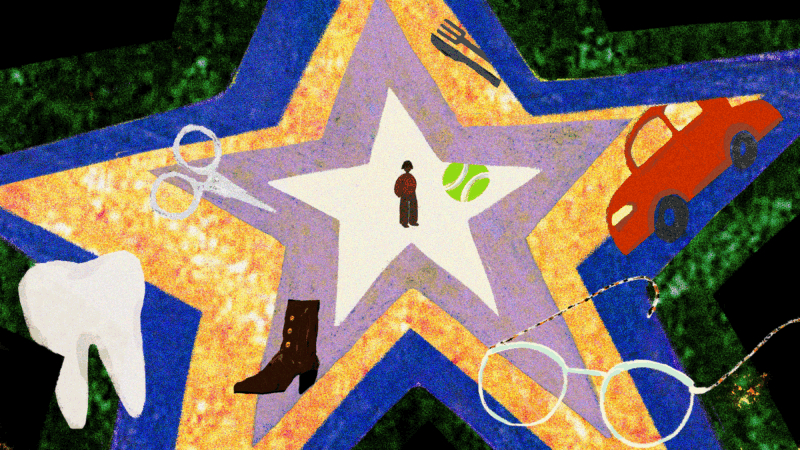Supreme Court weighs whether law enforcement can be held accountable for raid on wrong house
The Supreme Court hears arguments Tuesday in a case testing what recourse victims have when federal officers wrongly invade their homes.
At issue is what law enforcement refers to as “wrong-house raids.” Local, state, or, as in the case before the court, federal officers smash into a private home to find a suspect, but it’s the wrong house. That’s what happened in the middle of an October night in 2017, when Trina Martin, her 7-year-old son Gabe, and Trina’s partner, Toi Cliatt, were asleep in their Atlanta home when they heard a loud bang.
A team of FBI and SWAT agents had used a grenade to blast open their front door. The agents were serving an arrest warrant for a neighbor accused of gang activity. The problem was, they had the wrong house.
Inside the house, Martin, her son, and her partner were terrified, she recalled to NPR. “Why would [SWAT] be here?” she remembered thinking. “We’re just regular people.”
Armed law enforcement officials charged up the stairs, eventually handcuffing Cliatt and leaving Martin in the bedroom, unable to reach Gabe, who was hiding under the covers.
“It’s just so, so loud … I’m crying … I’m calling for my mom … I was on my own, and I had no clue what to do,” Gabe said.
Officers pointed guns at the three, separating them from one another, and after a disputed period of time, the agents realized they were in the wrong house, and left. One officer came back later to apologize, after the team had successfully executed the raid at the correct home down the street.
In 2019 the family sued the FBI and individual agents for the wrong-house raid. It’s never easy to bring such cases in state court, and it is even harder in federal court. That’s because the federal government is generally immune from being sued, except in certain circumstances set out by Congress.
The question for the Supreme Court on Tuesday is whether this wrong-house raid falls within those circumstances.
The U.S. government typically benefits from “sovereign immunity,” meaning it can’t be sued. But Congress passed the Federal Tort Claims Act in 1946 making an exception to allow lawsuits against the federal government for harms caused by its employees. The statute was amended in 1974, partly in response to two high-profile wrong-house FBI raids.
The question for the Supreme Court on Tuesday is whether the statute, as amended, now allows victims to sue, period. Or can they sue only if the perpetrators of the raid were following government orders, here orders from the FBI.
The government’s argument is that the FBI officers were told to go to the right home, not the home they raided, and that the FBI should not be liable for every wrong judgment call a federal officer makes in these stressful situations. In the government’s view, the officers were tasked with executing a raid on the house of a “dangerous individual,” and making the government pay up for the officers’ mistake would undermine federal law enforcement’s ability to do its job in the future.
Martin and Cliatt counter that it shouldn’t matter whether the officers made this mistake, even though they were given the right address, because Congress intended for the government to be held accountable in these exact kinds of situations when it amended the statute in 1974.
For Martin and her family, this case is not just about the physical harms they’ve suffered. When asked what it would mean for their case to move forward, she said, “That would feel like I fought… not just for us, but for everyone else that has gone through what we’ve gone through.”
Meanwhile, Cliatt hopes for, in a word, accountability. “We’re not anti-police, but I think that there are better ways of catching criminals than just, you know, kicking open doors in the middle of the night.”
The high court’s 6-3 conservative majority has had plenty of chances to weigh in against these wrong-house raids. But for decades, the court has rejected several claims against law enforcement officers, making it more difficult to bring cases like this one.
But never say never, as the Supreme Court just a few years ago made it easier to hold some officers and prosecutors accountable for wrongdoing in certain situations.
A decision in the case is expected this summer.
Pentagon shifts toward maintaining ties to Scouting
Months after NPR reported on the Pentagon's efforts to sever ties with Scouting America, efforts to maintain the partnership have new momentum
Why farmers in California are backing a giant solar farm
Many farmers have had to fallow land as a state law comes into effect limiting their access to water. There's now a push to develop some of that land… into solar farms.
Every business wants your review. What’s with the feedback frenzy?
Customers want to read reviews and businesses need reviews to attract customers. But the constant demand for reviews could be creating a feedback backlash, experts say.
‘Get back to integrity’: Oklahoma’s Kevin Stitt on Republicans after Trump
NPR's Steve Inskeep asks Oklahoma Gov. Kevin Stitt about his spat with President Trump, immigration and the future of the Republican Party.
Civil rights leaders say the racial progress Jesse Jackson fought for is under threat
Activists say racial progress won by the Rev. Jesse Jackson is under threat, as a new generation of leaders works to preserve hard-fought civil rights gains.
Tariffs cost American shoppers. They’re unlikely to get that money back
After the Supreme Court declared the emergency tariffs illegal, the refund process will be messy and will go to businesses first.






